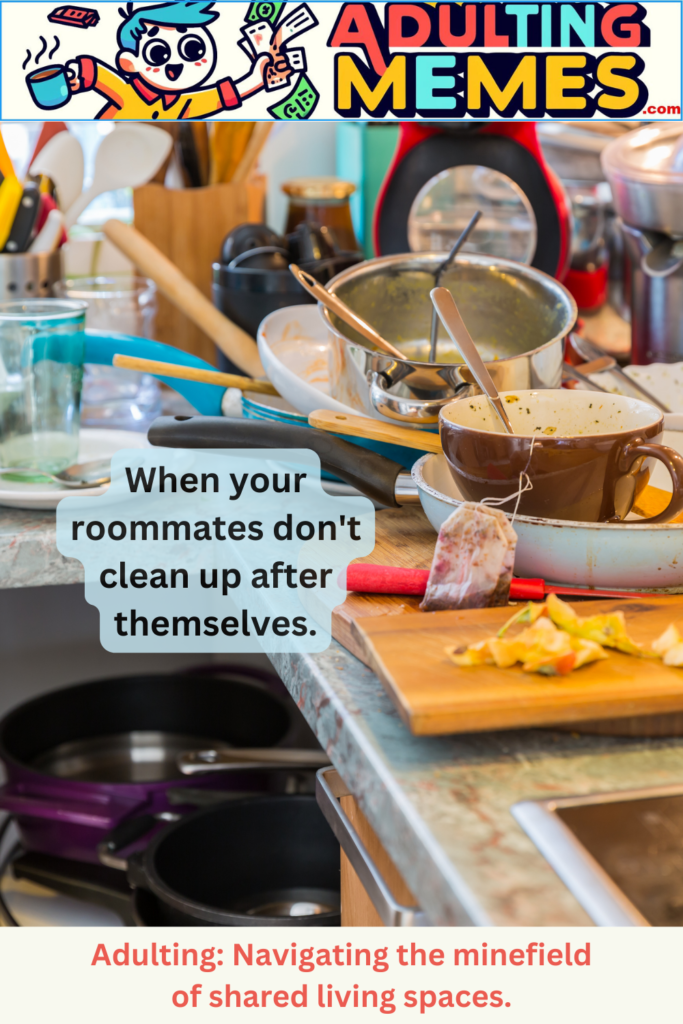Living with roommates can be a great experience, but it also comes with its challenges, especially when it comes to keeping shared spaces clean. If you’ve ever been frustrated by roommates who don’t clean up after themselves, you’re not alone. Here are some tips to help you navigate the minefield of shared living spaces and maintain a harmonious household.
Understanding the Problem
- Different Standards: Everyone has different standards of cleanliness, and what’s acceptable to one person might be unacceptable to another.
- Busy Schedules: Roommates may have hectic schedules that make it hard for them to find time to clean.
- Lack of Communication: Misunderstandings and assumptions can lead to messes being left unaddressed.
- Habitual Behavior: Some people simply aren’t in the habit of cleaning up immediately.
Tips for Managing Shared Spaces
Here are practical strategies to help you manage shared spaces and encourage a cleaner living environment:
- Set Clear Expectations: From the start, have an open conversation about cleanliness standards and expectations. Discuss how often common areas should be cleaned and who is responsible for what tasks.
- Create a Cleaning Schedule: Develop a cleaning schedule that assigns specific tasks to each roommate. Rotate responsibilities to ensure fairness and accountability.
- Use Visual Reminders: Place friendly reminders or signs in common areas to encourage cleaning up after oneself. A simple note near the sink or trash can can be effective.
- Lead by Example: Be a role model by keeping your own areas clean and promptly addressing messes. This can encourage others to follow suit.
- Divide and Conquer: Split common areas into zones and assign each roommate a specific area to maintain. This can make cleaning more manageable.
- Hold Regular Meetings: Schedule regular roommate meetings to discuss household issues, including cleanliness. Use these meetings to address concerns and adjust the cleaning plan as needed.
- Provide Cleaning Supplies: Ensure that cleaning supplies are readily available and easily accessible. Sometimes, the lack of supplies can be a barrier to cleaning.
- Positive Reinforcement: Recognize and appreciate when your roommates make an effort to keep things clean. Positive reinforcement can motivate them to continue good habits.
Handling Conflicts
When conflicts arise, it’s important to address them calmly and constructively:
- Communicate Directly: Talk to your roommate directly about the issue instead of leaving passive-aggressive notes. Use “I” statements to express how the mess affects you.
- Be Specific: Clearly explain what the problem is and what you would like to see changed. Vague complaints can lead to misunderstandings.
- Listen Actively: Listen to your roommate’s perspective and be open to finding a compromise that works for both of you.
- Seek Mediation: If conflicts persist, consider seeking help from a neutral third party, such as a resident advisor or a mutual friend, to mediate the discussion.
Long-Term Solutions
For long-term success, consider these additional strategies:
- Establish Boundaries: Define personal and shared spaces clearly. Respect each other’s personal areas while maintaining common areas collectively.
- Encourage Accountability: Hold each other accountable for keeping the space clean. Gentle reminders and check-ins can help reinforce responsibilities.
- Create a Shared Fund: Set up a shared fund for purchasing cleaning supplies. This ensures everyone contributes to the upkeep of the household.
- Be Flexible: Understand that there will be times when schedules and priorities change. Be flexible and willing to adjust the cleaning plan as needed.
Living with roommates requires cooperation and communication, especially when it comes to keeping shared spaces clean. By setting clear expectations, creating a cleaning schedule, and addressing conflicts constructively, you can navigate the challenges of shared living and maintain a harmonious household. Remember, successful adulting involves finding balance and working together to create a comfortable living environment for everyone.
By following these tips, you’ll be better equipped to manage shared living spaces and deal with messy roommates effectively. No more frustration—just a cleaner, happier home!
